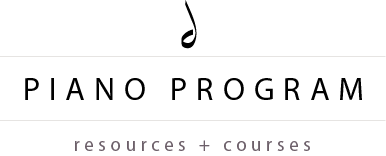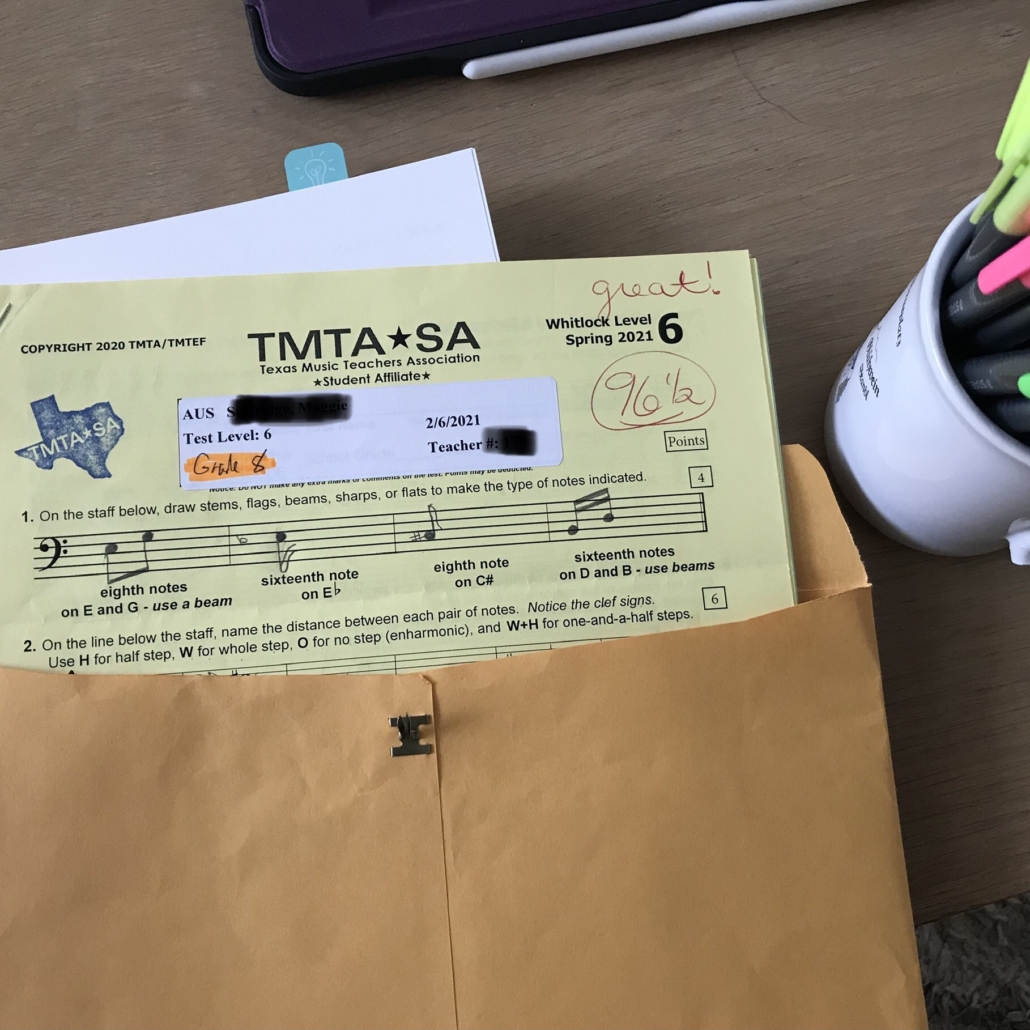From Beginner to Level 6 in nine months!
One common question that I get from teachers about the Piano Program Music Theory Courses is ‘what level do I place my students into?’ This can be especially difficult to determine if you are working with a transfer student, or an older beginner. As a general rule, I place my students into the level that is the same as their school grade. For example, 1st graders are in level 1, 4th graders in level 4, etc. Now, of course this works out perfectly IF you have a student who starts piano in 1st grade. That way their theory knowledge is directly correlated to how many years of piano lessons they have had.
But of course, not everyone starts piano in 1st grade, right? In that case, there really isn’t a right/wrong way to assign music theory levels. Take for example, if you have a student starting piano in 3rd grade. You may keep him/her on a level 1, or jump them right into level 3 and try to fill in the gaps in their lesson with you. Another solution would be start them in the level 1 course at an accelerated pace, moving them through the courses at a faster pace than normal until they reach their school grade. And if the student is playing beginning repertoire but in a higher music theory level? That usually isn’t a problem as music theory is an academic study that can be understood before those concepts are met in the repertoire. In fact, knowledge of the music theory concept before it is presented in repertoire study usually prepares the student for a ‘light bulb’ moment of when they approach that concept in music that they are studying.
Let me give you an example from my own studio. One of my sweet students started piano in the summer of 2020. She lives several hours away from me, so her lessons are 100% online. She started piano as an incoming 8th grader with no previous piano experience. I suggested that she participate in our state music theory test, and she was up for the challenge. As a beginner student, I suggested that she test at level 4, under her grade in school. However, my student set a wonderful goal for herself in testing at grade 6. So in just NINE months of lessons, my student worked on my music theory courses, starting at level 1, and ending at level 6 in February of 2021. She tested at level 6 and got……..a 96%! I was so proud of her. So now she is working on level 7 with the goal of getting to level 9 by the time she starts 9th grade in the fall. She watches the music theory videos in my course at home, outside of her lesson, does the workbook pages, and during our lesson she and I go over her workbook pages to make sure that she understood all of the concepts. I share my answer key over zoom (found at the end of the course) for a quick self grade, and then we discuss concepts missed. It literally takes 5 minutes or less out of her lesson. (From a repertoire standpoint, she just completed Accelerated Piano Adventures, level 1).
So there is no right or wrong answer to how to get your students on the correct level for them, but with the independence of my online courses, it is an option for them to work up to whatever level you’d like for them to be on. Our students can do amazing things!

